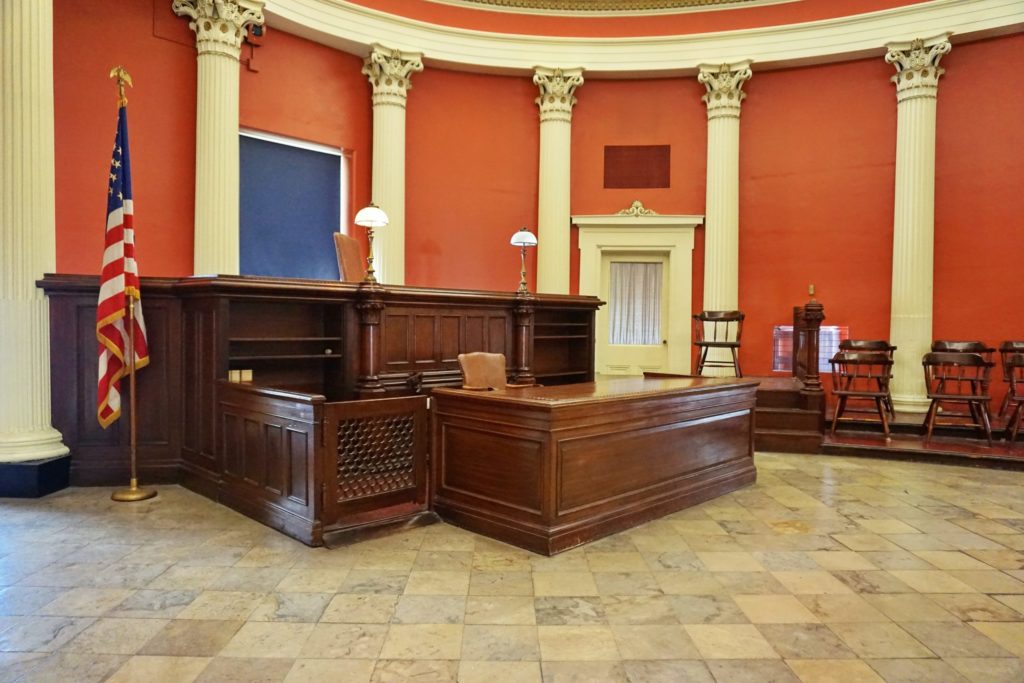Remote Depositions : The Future of Legal Proceedings
Remote Depositions : The Future of Legal Proceedings
Blog Article
Expert Legal Provider Enabling Remote Depositions for Simplified Legal Procedures
In the landscape of legal proceedings, the shift in the direction of remote depositions facilitated by expert lawful solutions has arised as a remarkable development. By accepting remote depositions, a new world of efficiency and usefulness unravels, guaranteeing to improve standard norms in the lawful ball.
Benefits of Remote Depositions
The effectiveness and ease of remote depositions have transformed the legal market, enhancing the process for all parties included. One of the considerable benefits of remote depositions is the adaptability they provide.
In addition, remote depositions enhance performance by enabling smooth document sharing and real-time transcription solutions. Attorneys can easily gain access to shows and evidence throughout doubting, improving the total effectiveness of the deposition. Remote Depositions. In addition, the capacity to tape-record remote depositions makes certain precision and provides a trustworthy document for future reference
Additionally, remote depositions promote safety and security and wellness, specifically in times of international crises like the COVID-19 pandemic. By performing depositions from another location, lawyers can stick to social distancing guidelines and focus on the well-being of all participants. In general, the advantages of remote depositions are indisputable, using a modern service to typical lawful treatments.

Innovation for Virtual Depositions
With the boosting need for remote depositions in the lawful market, the need for advanced technical remedies to facilitate digital proceedings has actually ended up being paramount. Technology plays an essential function in making it possible for smooth virtual depositions by offering devices for video clip conferencing, real-time transcription, and protected document sharing. Video clip conferencing platforms like Zoom and Microsoft Teams have become necessary for performing remote depositions, permitting individuals to sign up with from various places while keeping in person interactions. Real-time transcription services, such as AI-powered software application or clerks getting involved from another location, ensure immediate and accurate capture of statements during depositions (Remote Depositions). Additionally, secure record sharing platforms like Dropbox or ShareFile enable legal groups to exchange exhibitions, proof, and various other vital papers in a safeguarded on-line environment. In general, the integration of these technical remedies improves the performance, availability, and benefit of virtual depositions, making them an important property for contemporary legal procedures.
Lawful Conformity and Protection Steps
Executing rigid lawful conformity and durable security measures is essential for guaranteeing the stability and discretion of remote depositions in the lawful landscape. Adhering to regulatory requirements such as HIPAA, GDPR, and other information defense laws is important when carrying out remote depositions to secure sensitive information. Security procedures should be employed to secure information transmission, ensuring that personal information shared throughout the deposition remain secured from unauthorized access.
Moreover, access controls need to be developed to confirm individuals and restrict access to just authorized people. Remote Depositions. This aids stop data violations and unapproved recordings or disclosures. Systems used for remote depositions should have multi-factor authentication, protected login processes, and audit tracks to track any kind of dubious tasks
Along with technological safeguards, attorneys must likewise develop clear procedures for saving and managing deposition recordings and transcripts safely. Normal training on information protection finest methods should be supplied to all events associated with the remote deposition procedure to maintain a high level of vigilance versus potential safety and security dangers. By focusing on lawful compliance and protection procedures, remote depositions can be carried out with self-confidence, upholding the concepts of confidentiality and integrity in legal process.
Remote Deposition Finest Practices
To make certain effective and reliable remote depositions, Get the facts experts need to abide by developed best practices. To start with, it is important to carry out a pre-deposition technology check to guarantee all participants have a stable web connection and recognize with the video conferencing platform being used. Supplying clear guidelines to all events entailed concerning the deposition procedure, consisting of standards on talking turns and file sharing, can aid preserve order and efficiency during the remote session.
In addition, marking a tech-savvy person to repair any type of technological concerns that might develop during the deposition can prevent disruptions and ensure a smooth proceeding. It is additionally advised to schedule breaks during longer depositions to avoid exhaustion and maintain the participants' emphasis and interaction.
Furthermore, reminding all participants of the privacy and personal privacy procedures in position for remote depositions is vital to maintain the integrity of the legal proceedings. By complying with these ideal methods, specialists can conduct remote depositions seamlessly and effectively, guaranteeing a successful deposition navigate here experience for all included parties.
Future Trends in Legal Proceedings
As the lawful landscape continues to advance rapidly, adapting and accepting technical improvements to digital systems for lawful process is ending up being significantly prevalent. By taking advantage of the power of AI, lawful professionals can boost their performance and accuracy in navigating complicated lawful issues.
Another emerging trend is the increasing use blockchain technology in legal process. Blockchain offers clear and safe and secure record-keeping, which can be particularly advantageous in areas such as agreement administration, copyright protection, and evidence preservation. Its decentralized nature guarantees information honesty and minimizes the risk of tampering or unauthorized alterations.
Additionally, the recurring change in the direction of online disagreement resolution (ODR) systems is reinventing just how lawful conflicts are fixed. ODR platforms give a economical and convenient choice to standard litigation, supplying events the possibility to clear up conflicts effectively with on the internet arbitration or arbitration. As innovation proceeds to development, these future patterns have the possible to reshape the legal landscape and boost access to justice for people and companies alike.

Conclusion
Sticking to best practices for remote depositions is important in guaranteeing a smooth lawful process. Looking in advance, future patterns in legal procedures are most likely to continue integrating remote deposition approaches for streamlined and structured lawful process.
In the landscape of lawful process, the change towards remote depositions promoted by professional lawful services has actually emerged as a remarkable innovation.With the description increasing need for remote depositions in the lawful industry, the necessity for advanced technological services to assist in virtual process has ended up being critical.Implementing strict lawful conformity and robust safety measures is vital for making sure the honesty and confidentiality of remote depositions in the lawful landscape. By prioritizing lawful conformity and security actions, remote depositions can be conducted with confidence, maintaining the concepts of confidentiality and stability in lawful proceedings.
Looking ahead, future fads in legal process are most likely to proceed integrating remote deposition methods for simplified and structured legal process.
Report this page